World Humanitarian Day (WHD) is held every year on 19 August to pay tribute to aid workers who risk their lives in humanitarian service, and to rally support for people affected by crises around the world.
If you feel inspired by our women's stories, visit our "Make a difference" page - and find out how you can support women humanitarians around the world.
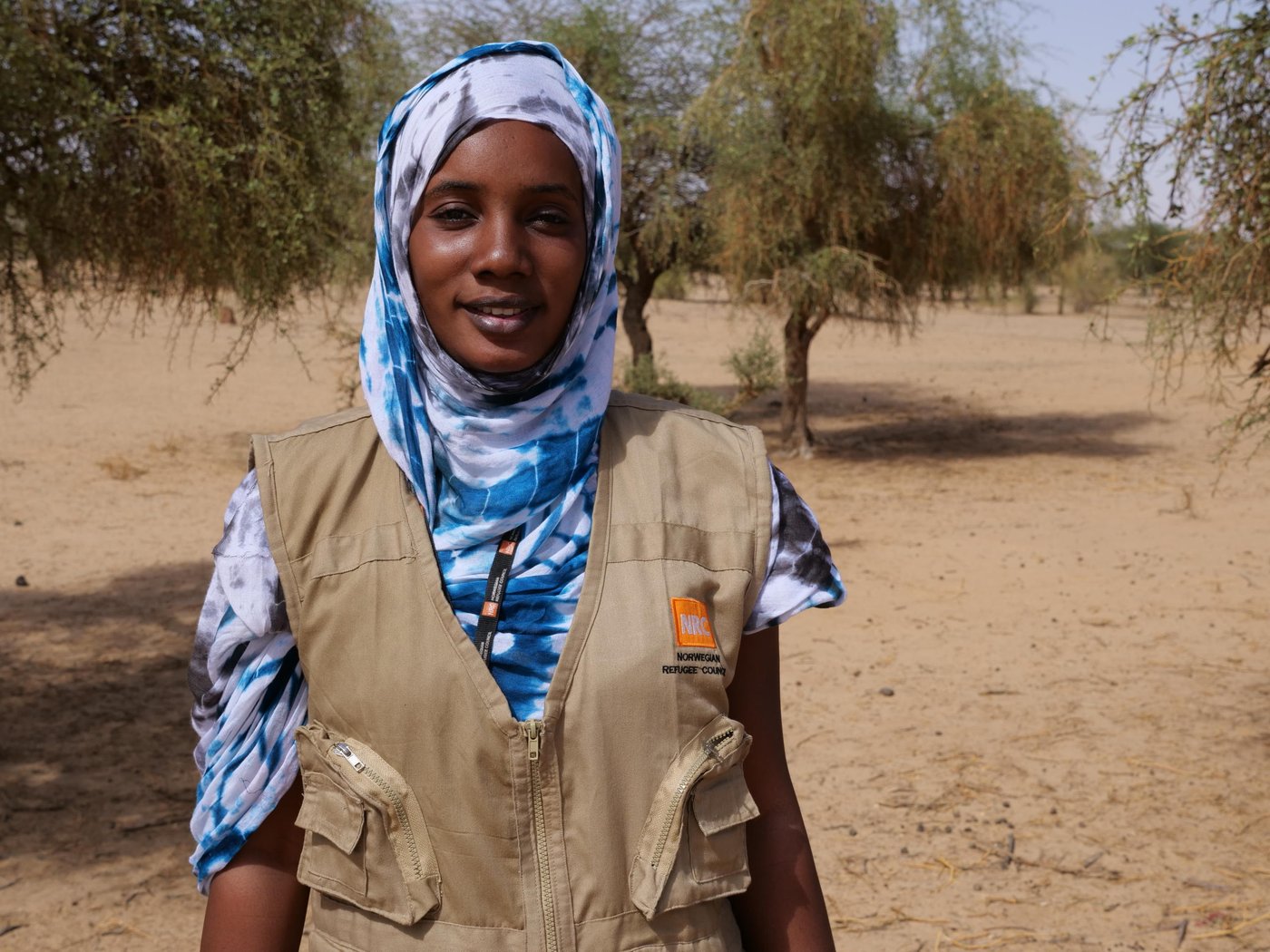
Aishatou Ibrahim Maiga – Education Officer, Mali
I have worked for the Norwegian Refugee Council (NRC) for three years now. I chose to work in the humanitarian sector because in 2012, Mali went through a crisis that really affected the north of the country. As someone from the north I felt obligated to contribute. That's what drove me to work as a humanitarian.
The challenges that we face daily are mostly related to security because we work in very dangerous zones. No-one can predict when something bad is about to happen, but that doesn’t stop us from continuing to work to provide assistance to those in need.
What allows us to overcome these challenges is our faith and the desire to succeed. The desire to meet our objectives. The desire to assist those in need.
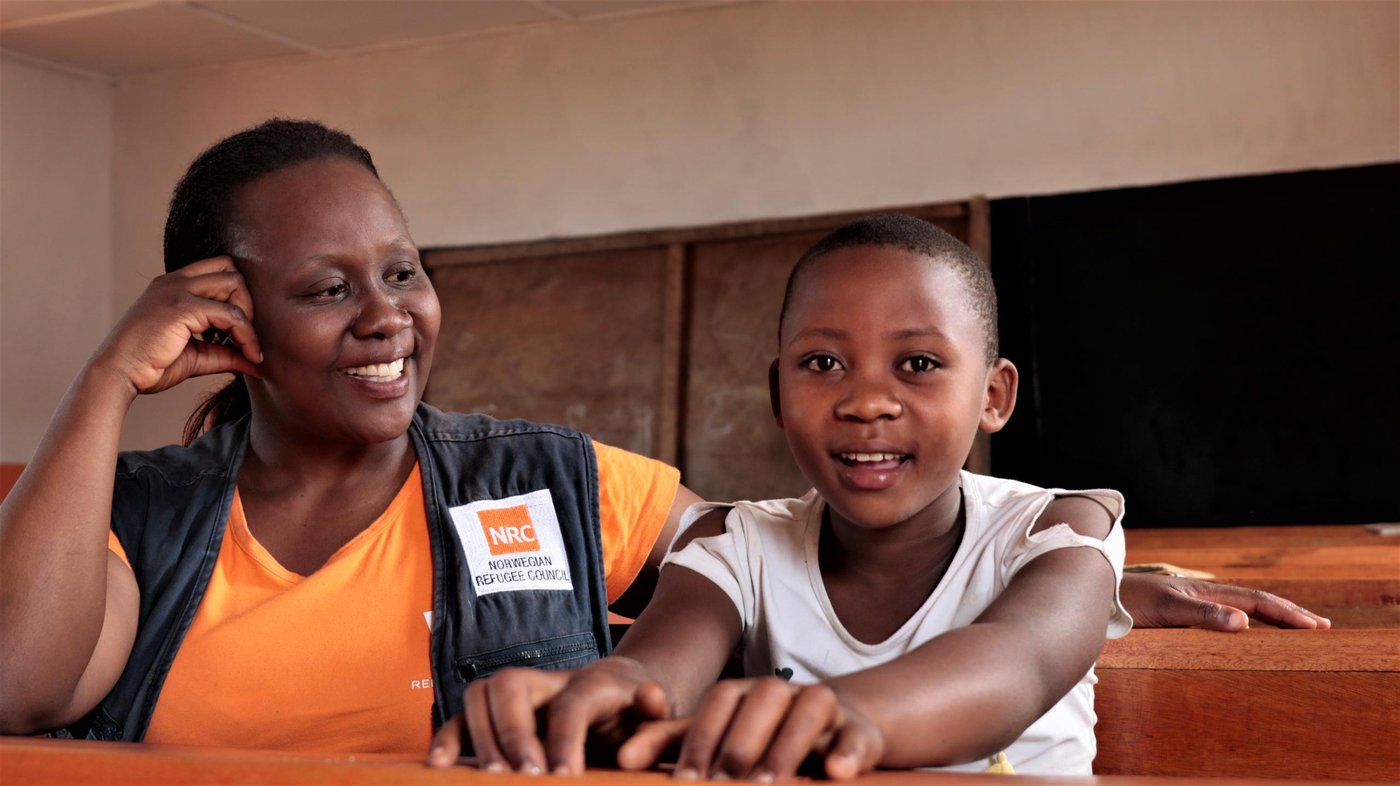
Clémence Sebusanza – Education Coordinator, DR Congo
When I was 23, I served as a volunteer providing water and biscuits to Rwandese refugees who had fled to the Democratic Republic of the Congo. One day, I met a woman who was exhausted and almost dead, laying on the ground. I gave her some water and she opened her eyes. A tiny thing, but it gave her a glimpse of hope to survive. It touched me emotionally, and I decided to continue trying to save the lives of those in need.
At the beginning of my career, it was hard and tough for me to compete with men. Now I feel so proud to be an aid worker saving lives. My greatest success is that I contribute to helping thousands of vulnerable children to go back to school.
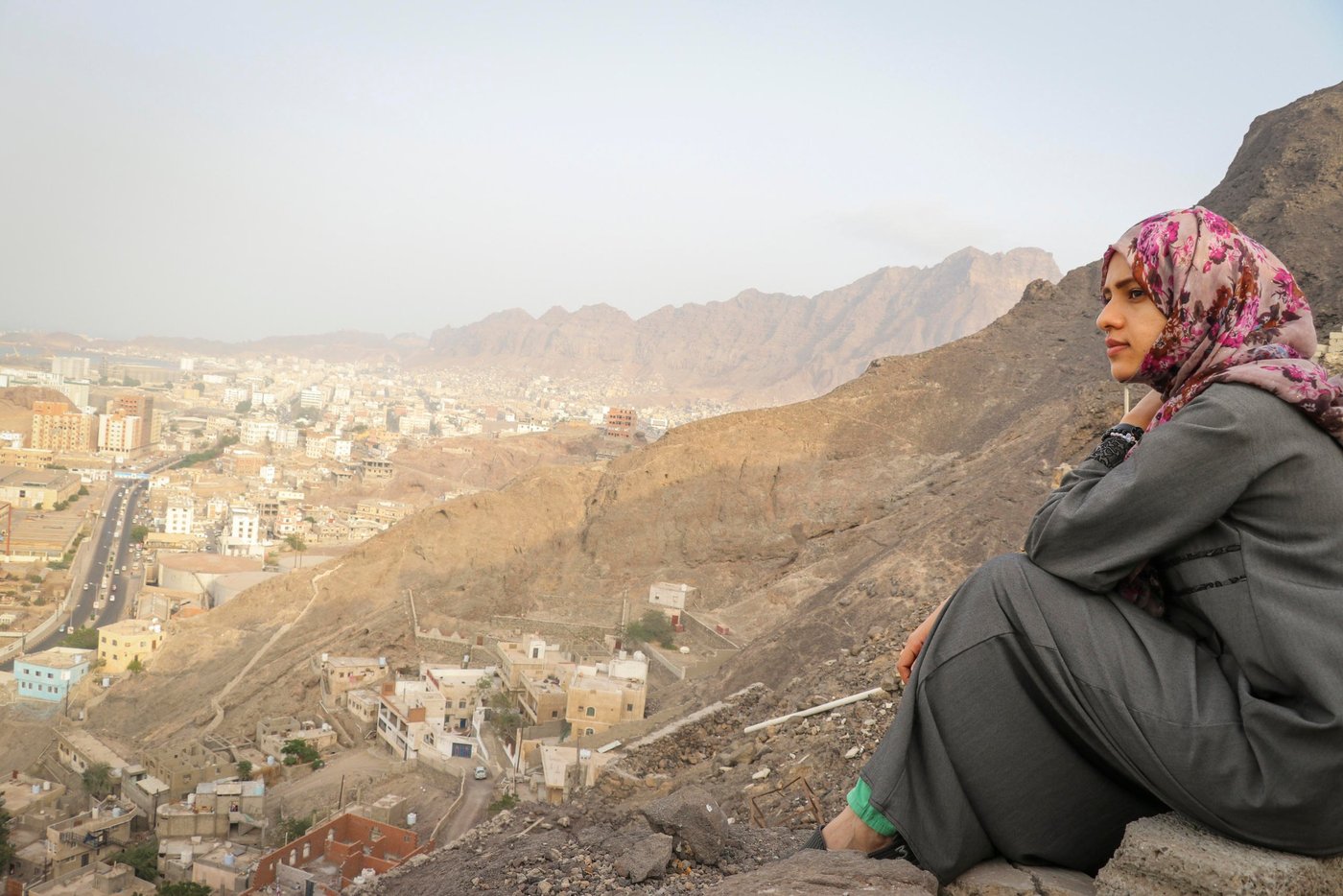
Nuhad Mubarak – Legal Officer, Yemen
As you enter the camps, you expect to see people who are feeling down and depressed. But when you meet them, it’s as if they’re telling you: “Yes, we need help. But we are surviving despite everything. We are strong.” For example, I met a pregnant woman and asked her: “How do you feel knowing that you are going to give birth under such conditions?” She replied: “It’s fine. What happens to me is God’s will. I just wake up in the morning, go and get water and firewood – and manage just fine.”
These people make you feel like everything you have gone through is peanuts by comparison. They should be role models for quite a few of us around the world. We should all adopt some of their attitude: life is beautiful, it must be lived. You have to fight and fall. But you pick yourself back up again.
It’s going to take time before everything is back to normal here. Meanwhile, we can stand together. Be strong. Have hope. No matter what job you have or where you are in life, everyone can try to do something to make the world a better place – for everyone.
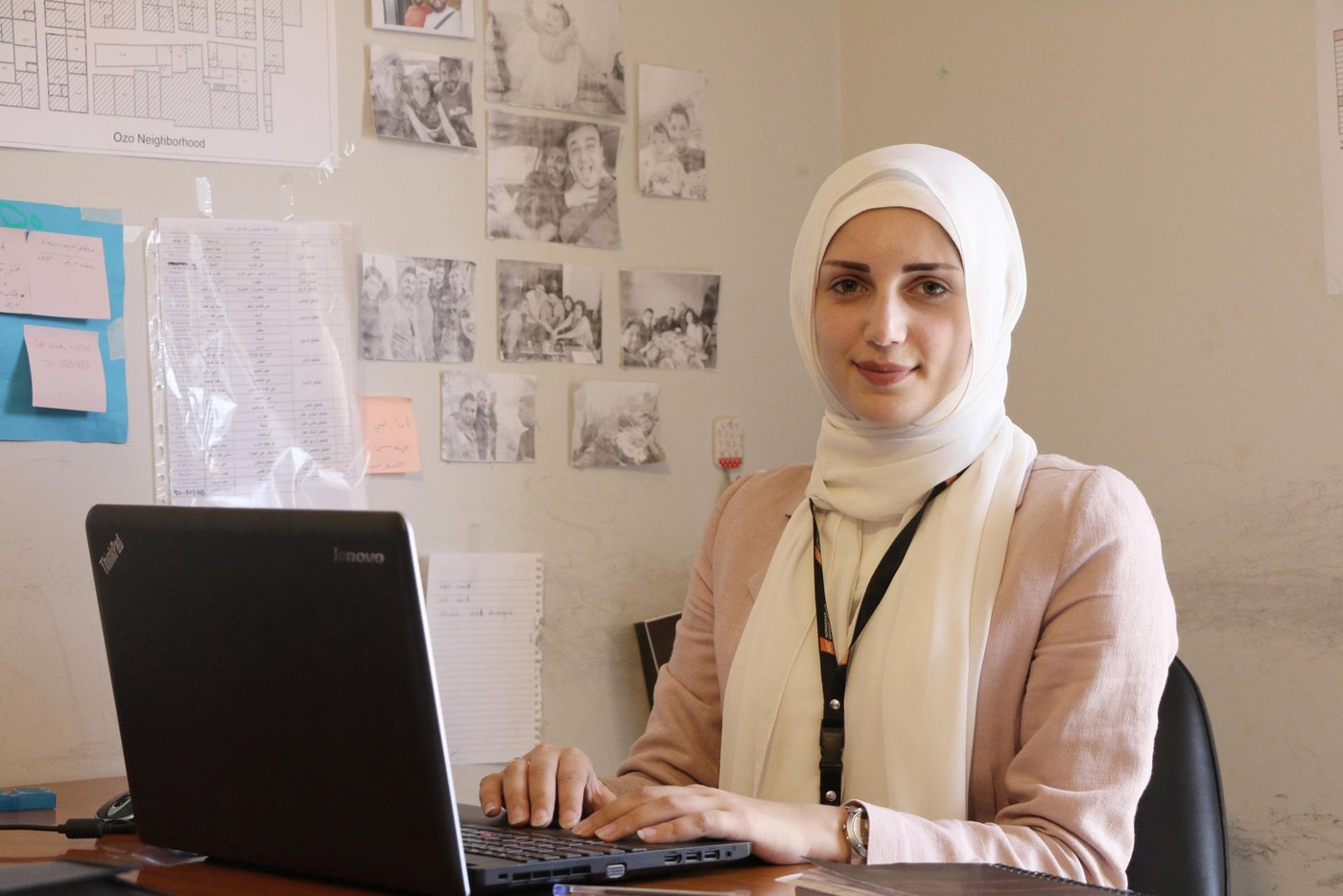
Rayan Bzayh – Information Field Assistant, Lebanon
My purpose has always been to help people in need, and NRC was the best organisation – one that I always looked up to. I’m motivated by women’s empowerment, so I focus on spreading awareness among women about their rights.
I really enjoy the fact that the awareness sessions I give are making a difference to people’s lives, and that refugees are now able to issue civil documentation on their own. The more that refugees know about the importance of birth registration in Lebanon, the more I feel I’m making a difference.
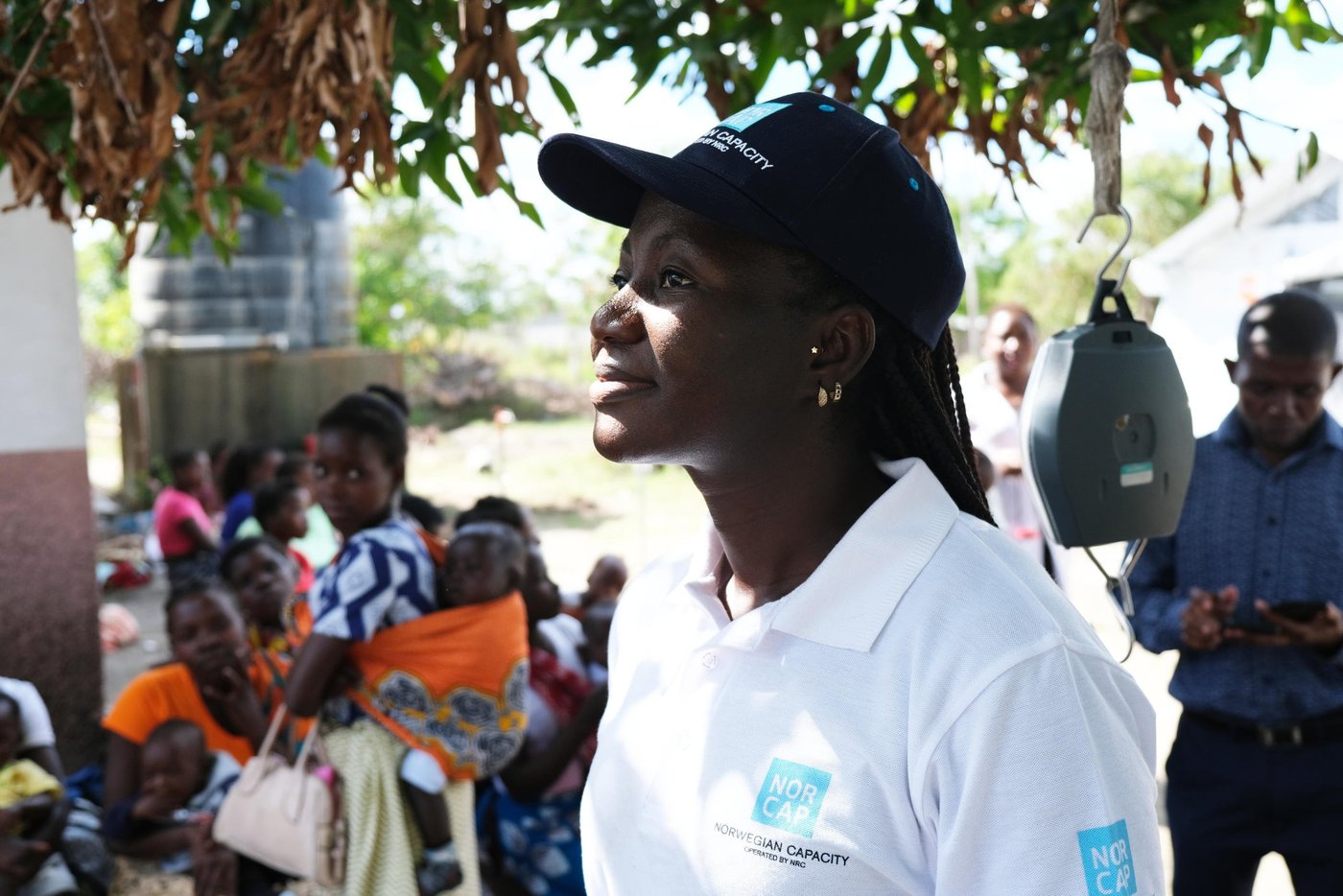
Sabine Nana – NORCAP expert, Mozambique
When I was in school, many of my classmates left their education because of pregnancy. Most of them never returned. I wanted to help students avoid unwanted pregnancies so that they could continue their education.
The difficult part of being a female humanitarian is when people think that, because I am a woman, I cannot set up tents or be away from my family. Once a man told me: “you have too much freedom. That is not good for a woman.” It made me feel insecure. However, with the work I do, it is easier being a woman. Sometimes women don’t want to talk or meet with men. When I meet women, they are confident and comfortable to talk.
Since I began my mission in Mozambique, my colleagues and the victims of Cyclone Idai have become my family. Witnessing what people do to replace what they have lost is what motivates me. Being able to contribute with the expertise I have makes it all worthwhile.
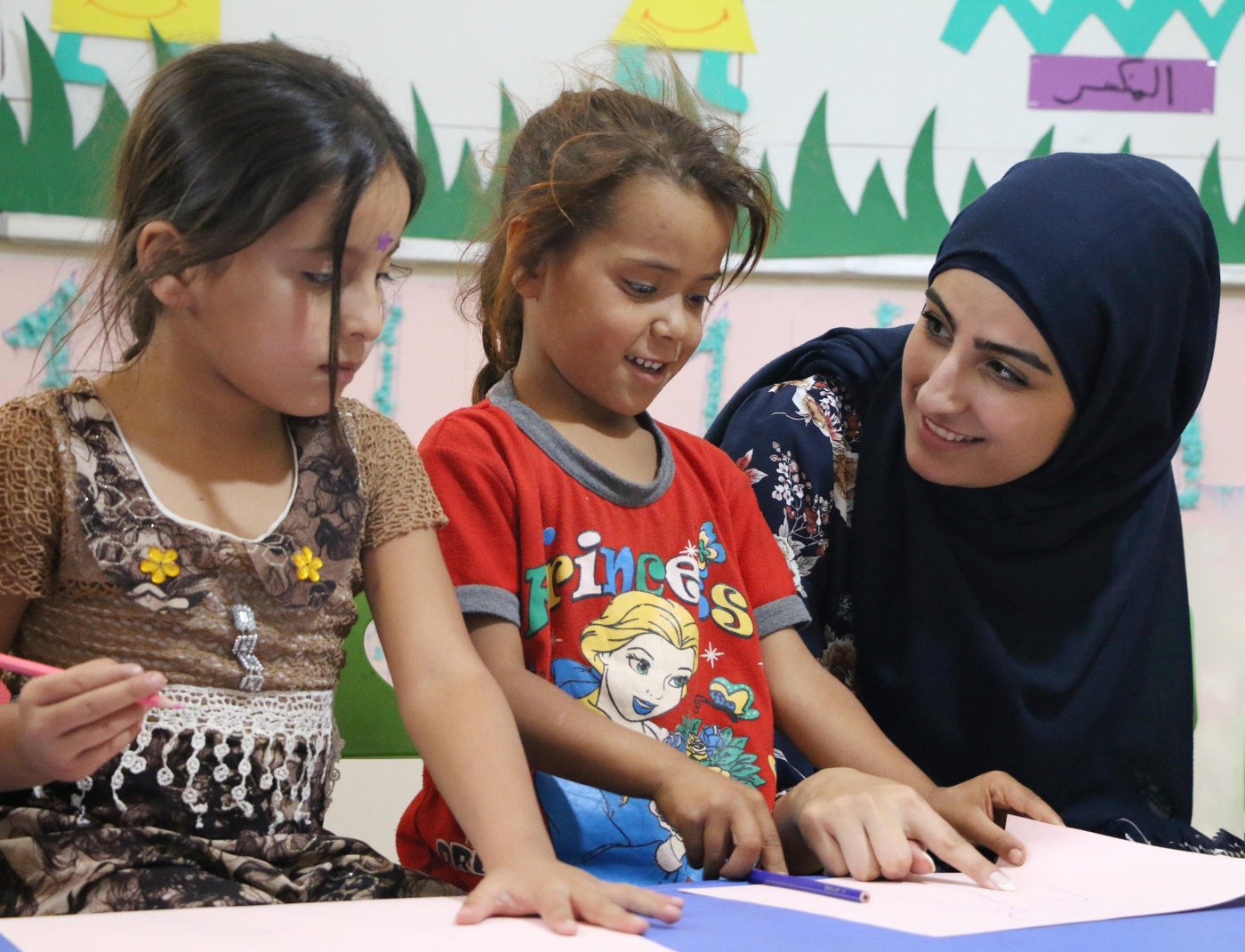
Shaimaa Hashem – Education Officer, Lebanon
My future dream is to establish a school for girls in Africa, as I am very inspired by the young girls who teach their fellows and continue their education at the same time.
The children I work with influence me and I influence them. They make me more caring, and they improve my core values. Every day, I check up on the students to make sure that they have everything they need, and that they feel comfortable at NRC’s education centre. I try my best to make them happy, and I am inspired to work with them from the bottom of my heart.
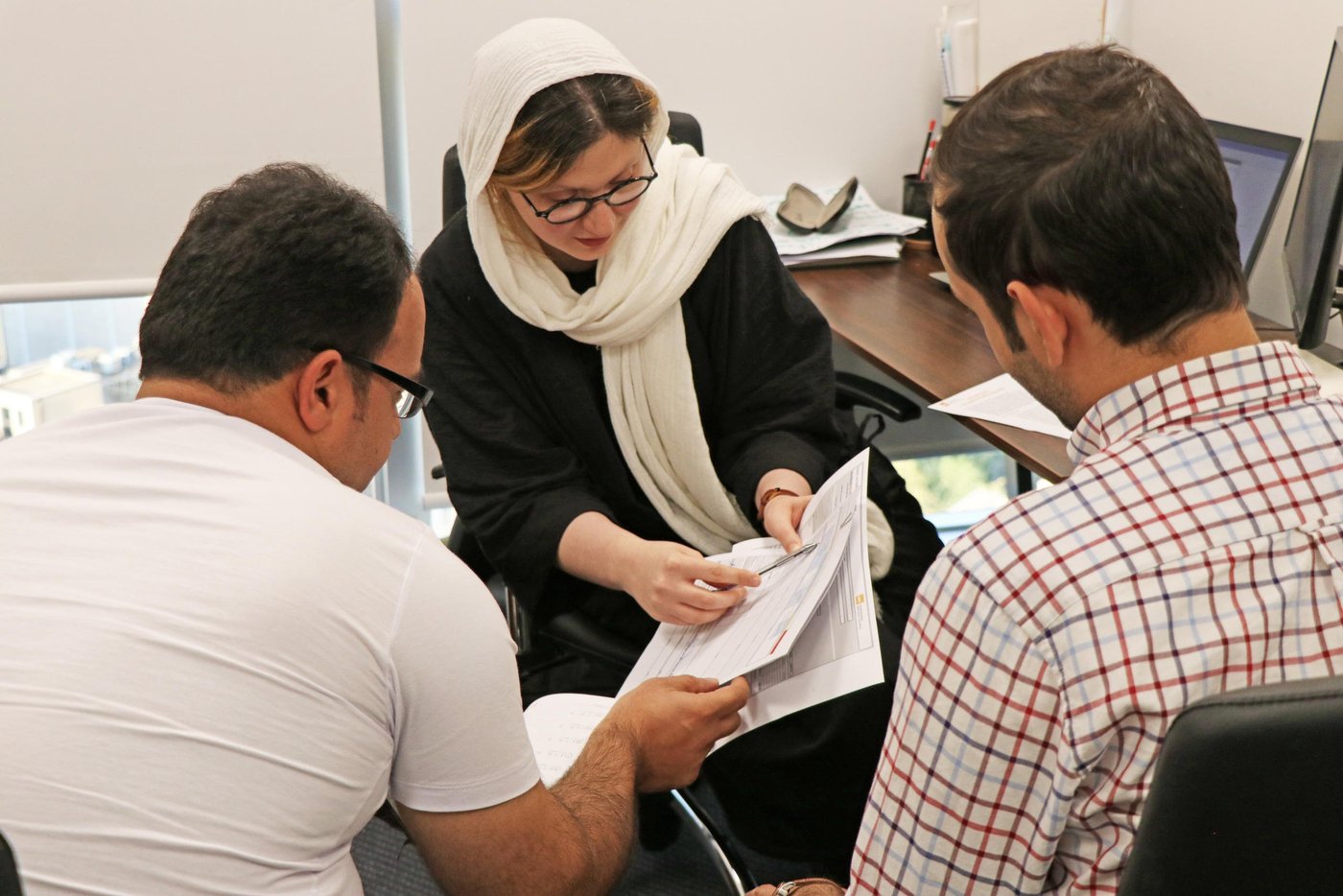
Sogol Mehrani – Finance Manager, Iran
I always wanted to make the world hear the voice of people in need. It took me some time to realise that I can be of more help behind the scenes and that you don’t always have to be in the field to make a difference. I still make sure to go to the field occasionally, which helps me remember my purpose in the most difficult times.
Being a finance manager, I mostly deal with compliance and budget. The most demanding part of my job is finding solutions that both comply with the regulations and meet the endless immediate needs of each unit. “Spontaneity” is unavoidable in humanitarian work, but complying with regulations is vital for the long-term sustainability of our programmes.
Doing what I do, I’ve learned there is no perfect solution, neither for the miseries across the globe nor for the challenges we face every day. But small steps can still mean the world to some people.
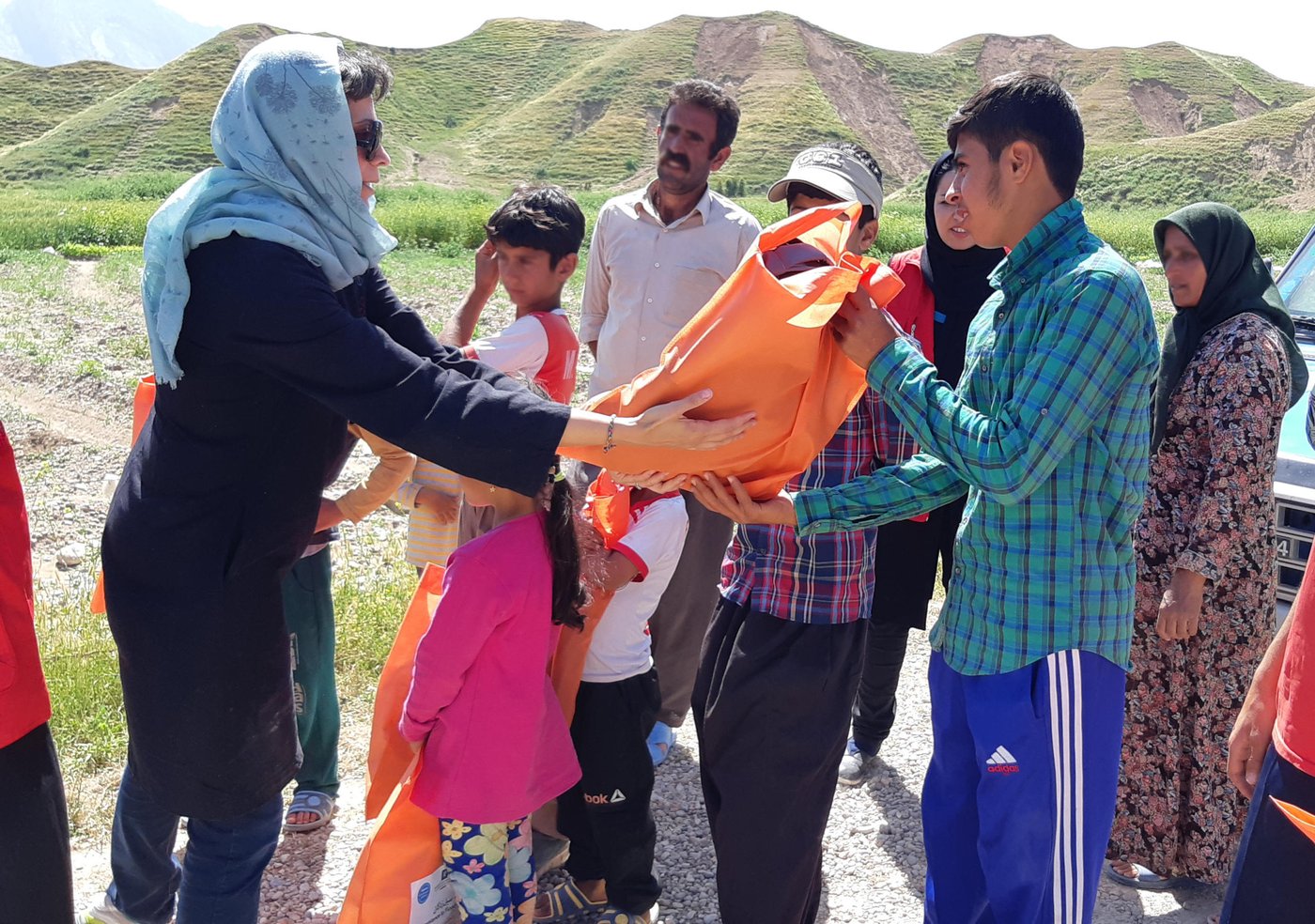
Solmaz Mougouie – Emergency and Early Recovery Manager, Iran
Every person is born with a mission. Being a responder is mine.
I am from Tehran, Iran. When I finished my studies in Germany, I began volunteering with Iranian NGOs before joining a programme in Syria to fight for children’s right to education. The horrifying earthquake in Kermanshah, Iran, in 2017, called me back home. I joined NRC as an emergency manager, and I’ve stayed there ever since.
What my job has taught me is to have patience and show flexibility. Being in the field and with people energises, but at the same time, infuriates me. It's maddening to see what humans are doing to one another, but the sparkle in children’s eyes when you help them is worth it all. Life flows through my job. It’s where you see the black and the white in humanity, and then there are those who give you hope all over again, people whose faces you never forget .
As a woman in the field, I often have to prove myself before being taken seriously, but once that happens, nothing can stop me. I cannot see myself doing anything else.
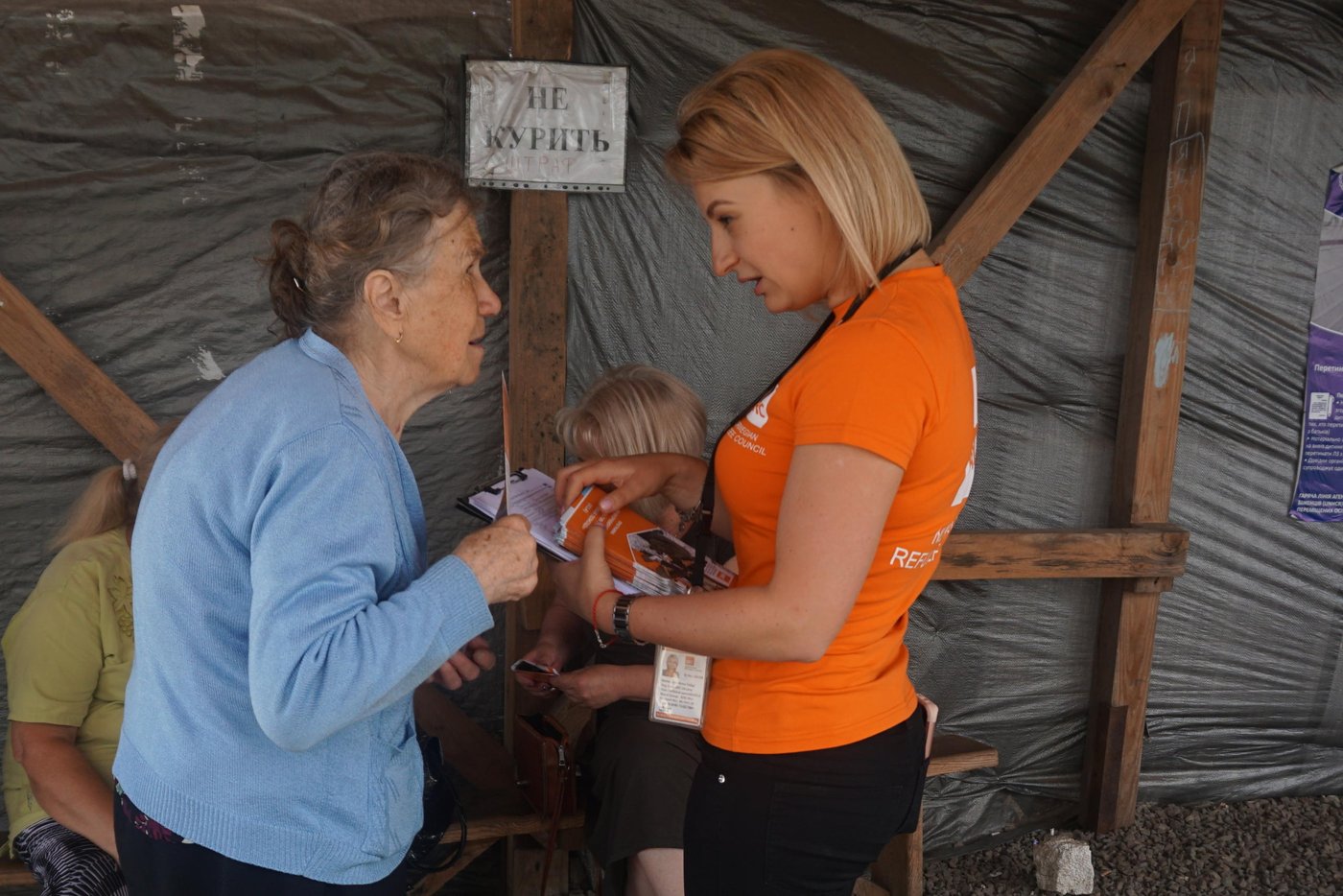
Yuliia Voronkova – Legal Officer, Ukraine
I work at checkpoints, helping residents of non-government-controlled areas to understand changes in legislation and, for example, how the process for receiving certain payments or documents has changed.
When I arrive in frontline communities, I try to conduct a dialogue with people not only as a lawyer, but also as a friend. Many of the residents have already lost hope and given up. I take close to my heart each personal story and never stop halfway. Even when it becomes clear that a problem currently has no solution, there is always a way.
I often ask myself who I want to be in the future. I understand that my vocation is to help people. I am sure that when the conflict is over, the necessity for lawyers in the humanitarian area will still exist. And I would like to keep working in this direction.
***
How you can support our women humanitarians
Would you like to help our women humanitarians to support the 70.8 million people displaced by war and persecution worldwide? You can contribute to our work in the following ways:
- Make a donation to NRC today – via our safe and easy online donation system.
- Start your own fundraising page – and invite friends and family to help you reach your target.
- Read about ten things YOU can do for the world’s refugees – and discover some creative ways that you can raise money and awareness.
For alternative ways to donate, or if you’re a US citizen looking to make a 100% tax-deductible donation, please see our Make a difference page.
Thank you! Together we can save lives and rebuild futures.

